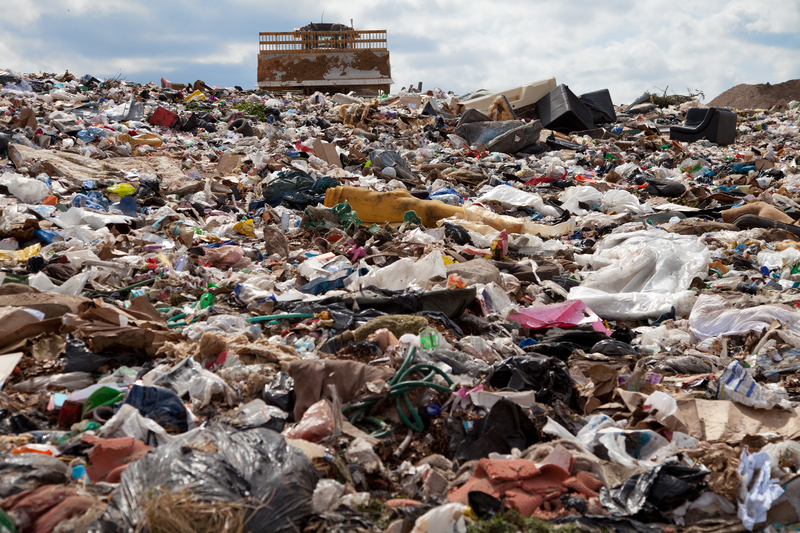Eco-Conscious Office Operations: Minimizing Waste Impact
In today's rapidly evolving corporate landscape, attention to environmental stewardship is no longer optional. Eco-conscious office operations are becoming a competitive advantage, as organizations of all sizes are realizing the need to reduce environmental impact, especially regarding waste production and management. Adopting sustainable office practices is crucial for minimizing waste impact, enhancing brand image, and operating efficiently while protecting the planet for future generations.
Why Eco-Conscious Office Practices Matter
With over 80% of global waste generated in urban settings, office environments contribute a significant part to this figure. Traditional business operations, which often involve excessive paper usage, disposable supplies, and inefficient resource management, result in vast amounts of landfill waste and greenhouse gas emissions.
- Environmental Impact: Waste not only fills landfills but also contributes to pollution and resource depletion.
- Corporate Responsibility: Consumers and investors are increasingly demanding transparency and responsibility from businesses.
- Cost Savings: Efficient resource management can lead to significant cost reductions in supplies, utilities, and waste disposal.
Today's offices must transition to minimizing waste impact as a core organizational objective. The following comprehensive guide covers practical strategies, benefits, and implementation tips for truly eco-friendly workspace management.

Understanding Waste Streams in the Office
Before adopting sustainable office routines, it's crucial to identify the major areas generating waste within the typical office environment. Common waste streams include:
- Papers and Documents: Reports, memos, mail, marketing materials
- Packaging Materials: Cardboard, plastic wraps, bubble mailers
- Electronic Waste (E-waste): Outdated computers, printers, mobile devices
- Single-Use Products: Cups, utensils, plates, napkins
- Food Waste: Unconsumed catered food, lunch leftovers, packaging
- General Waste: Office supplies, decorations, furniture
Understanding your waste footprint will help to effectively tailor solutions to minimize waste impact in your specific office setting.
Top Strategies for Minimizing Waste in Office Operations
1. Implement a Comprehensive Waste Audit
Start your sustainability journey with a waste audit. This process involves collecting and analyzing the waste your office produces over a set period to determine volume, type, and sources.
- Identify the main types of waste generated
- Track daily and weekly patterns
- Spot high-impact areas for intervention
A professional waste audit can also give insight into local recycling options and help set realistic waste reduction goals.
2. Go Paperless Whenever Possible
Paper usage remains one of the biggest contributors to office waste. Transitioning to a paperless office is a cornerstone of eco-conscious business operations.
- Adopt cloud storage and digital collaboration tools (Google Drive, Microsoft Office 365, Slack)
- Encourage digital signatures using electronic document software
- Switch to e-billing and digital communication whenever possible
- If printing is necessary, use recycled paper and double-sided printing
Not only do these practices minimize waste, but they also enhance productivity and information accessibility.
3. Set Up Recycling and Composting Stations
Proper waste segregation is essential. Designate clearly-labeled recycling and composting bins throughout your office, especially in break rooms and common areas.
- Recycle paper, cardboard, glass, plastics, and metals
- Compost food scraps, coffee grounds, and compostable packaging
- Provide educational signage to reduce contamination
- Partner with local recycling centers and composting companies
When employees know what goes where, you drastically improve the rates of landfill diversion.
4. Reduce Single-Use and Disposable Items
Single-use items have a short lifespan but a long-lasting environmental footprint. Reduce dependency on disposables by:
- Providing reusable coffee mugs, bottles, and eating utensils for staff
- Switching to bulk dispensers for condiments, soaps, and cleaning products
- Avoiding individually packaged snacks or supplies
Eco-friendly office supplies have become widely available, so make swaps wherever possible.
5. Manage E-Waste Responsibly
Electronic waste contains hazardous materials that can leach into soil and water. Establish an e-waste recycling program to safely dispose of outdated devices, batteries, and toner cartridges.
- Work with certified e-waste recyclers
- Donate still-functioning equipment to charities or schools
- Consider leasing or upgrading IT equipment for energy efficiency
Equipment recycling not only minimizes waste impact but may offer financial benefits through tax deductions or rebates.
6. Encourage Green Procurement Policies
Make sustainability a requirement when sourcing office materials, furniture, and equipment.
- Purchase products made from recycled or renewable materials
- Prioritize items with minimal, recyclable, or compostable packaging
- Support vendors with strong environmental standards
- Choose energy-efficient appliances and lighting
A forward-thinking green procurement policy ensures your waste minimization efforts extend across your supply chain.
7. Promote a Culture of Sustainability
Staff engagement is critical for the success of eco-friendly initiatives. Foster a sustainable workplace culture by:
- Appointing eco-champions or a green team to lead efforts
- Organizing sustainability workshops and awareness campaigns
- Implementing reward programs for eco-conscious ideas or milestones
- Providing regular updates on waste reduction progress
When employees are informed and invested, sustainable habits become second nature -- ensuring lasting impact.
Leveraging Technology for Sustainable Office Operations
Technology plays a pivotal role in modern eco-friendly office management. From automating power usage to tracking waste and promoting remote work, digital tools can amplify your commitment to minimizing waste impact.
Smart Office Solutions
- Energy Management Systems: Automated lighting and HVAC systems optimize energy use and reduce electronic waste.
- Digital Document Storage: Cloud storage platforms decrease the need for physical files and printing.
- Waste Tracking Apps: Measure your office's waste outputs to identify new reduction opportunities.
- Collaboration Platforms: Support remote work, thereby minimizing the need for disposable products and excess commuting.
By leveraging the right technology, minimizing waste becomes integral to your office operations and not just an afterthought.
The Benefits of Minimizing Waste in the Office
Adopting waste-reduction strategies in office settings yields benefits that go far beyond environmental protection:
- Lower Operating Costs: Reduced supply and disposal expenses enhance profitability.
- Healthier Work Environment: Improved air quality and cleanliness boost employee well-being and productivity.
- Enhanced Corporate Image: Modern stakeholders value companies that contribute positively to the environment.
- Regulatory Compliance: Many regions require businesses to adhere to waste reduction and recycling mandates -- being proactive reduces legal risks.
- Employee Engagement: Staff appreciate workplaces that align with their personal values and encourage participation in sustainability efforts.
In the long-run, these advantages compound, positioning your organization as a leader in responsible, future-ready business operations.
Overcoming Barriers to Sustainable Office Practices
Despite the clear advantages, eco-conscious office operations face common challenges:
- Initial Investment: Upgrading equipment or infrastructure can be costly, but is offset over time by long-term savings.
- Behavioral Change: Shifting staff routines may require ongoing education and incentivization.
- Supplier Limitations: Not all vendors offer sustainable options - research and collaboration are key.
- Space Constraints: Smaller offices may need creative solutions for waste sorting and storage.
Persistence and incremental improvements are vital to overcoming these hurdles. Small changes, when sustained, have greater cumulative effects than sporadic large-scale efforts.
Real-World Examples of Office Waste Reduction
Many leading organizations, both large and small, have pioneered innovative approaches to minimize waste in the workplace.
- Google: Their zero-waste-to-landfill offices have achieved impressive waste diversion rates through a combination of robust recycling programs, composting, and sustainable food sourcing.
- Unilever: By implementing a circular office policy, Unilever redesigned product packaging and office resources to support reuse and recycling.
- Small Businesses: Many boutique firms are adopting eco-conscious workspace designs that use upcycled materials and incentivize low-waste commutes such as cycling or walking.
Learning from others reinforces the feasibility and importance of sustainable office operations.

How to Launch Your Waste Minimization Initiative
Ready to take action? Follow this step-by-step guide to launch a successful waste minimization program in your office:
- Assess Current Waste: Conduct a detailed waste audit to find key improvement areas.
- Set Measurable Goals: Define targets like "Reduce paper waste by 40% in one year."
- Engage Your Team: Involve employees in designing and implementing new practices.
- Redesign Processes: Map out office workflows to identify paperless and reusable options.
- Monitor Progress: Regularly track waste output and adjust tactics as needed.
- Celebrate Success: Share achievements and reward individuals who champion sustainability.
Conclusion: Future-Proofing Your Office with Eco-Conscious Operations
The shift to eco-conscious office operations is more than a trend--it's an essential evolution for responsible businesses seeking to minimize their waste impact. By adopting sustainable waste management strategies, engaging employees, and leveraging technology, your organization can dramatically reduce its environmental footprint while fostering a culture of corporate sustainability.
Remember, minimizing waste impact is a journey, not a destination. Each small step strengthens your commitment to a greener, more profitable, and highly respected business future. Start today -- the planet and your bottom line will thank you.